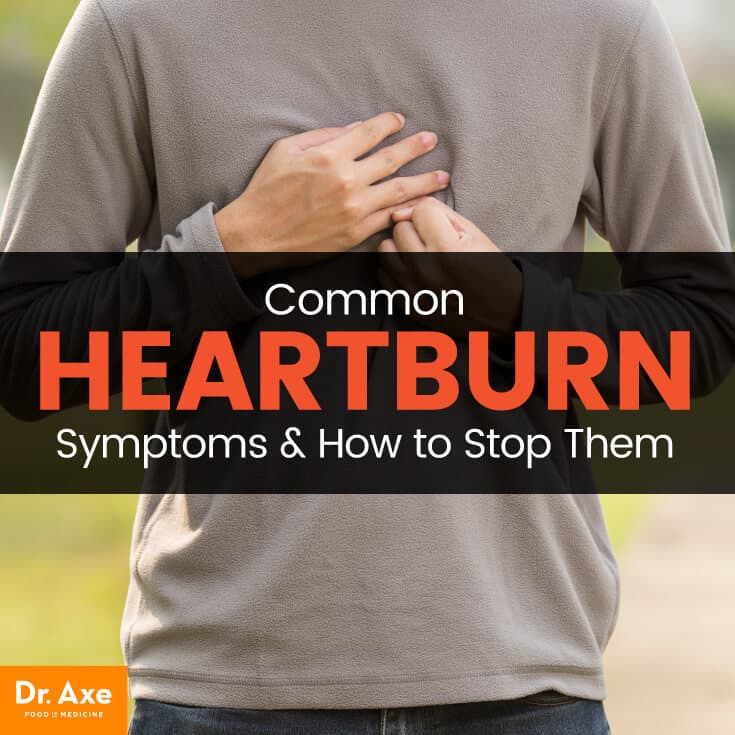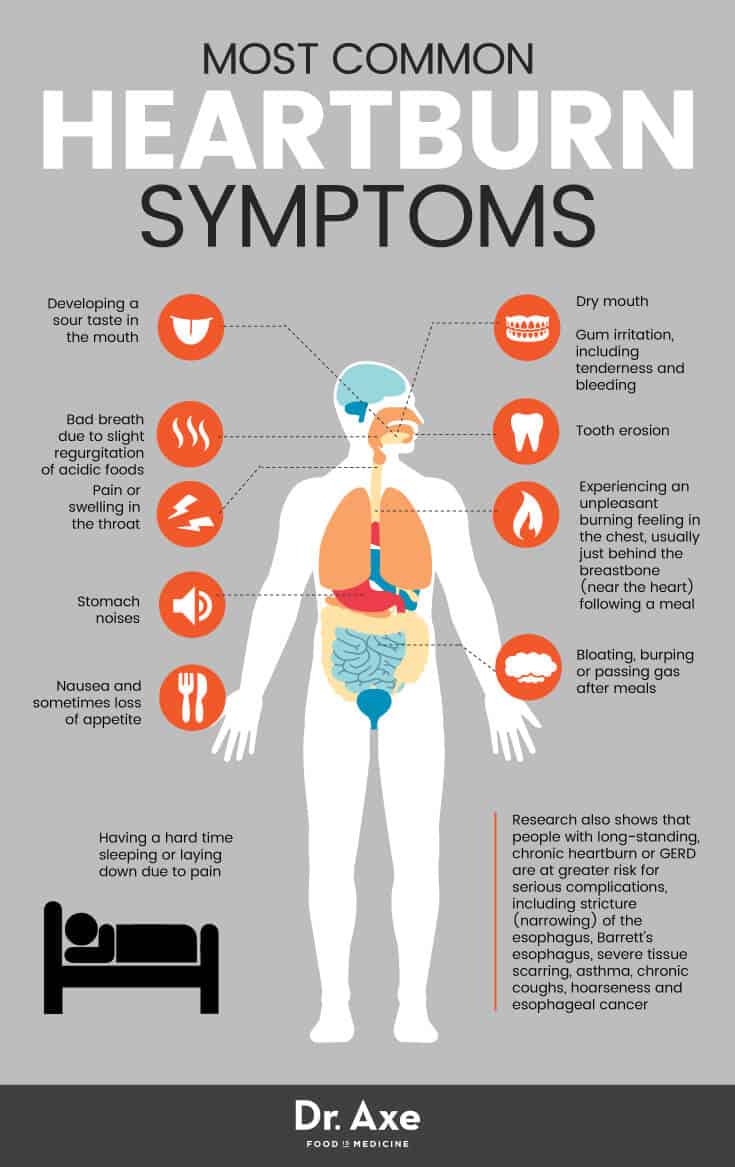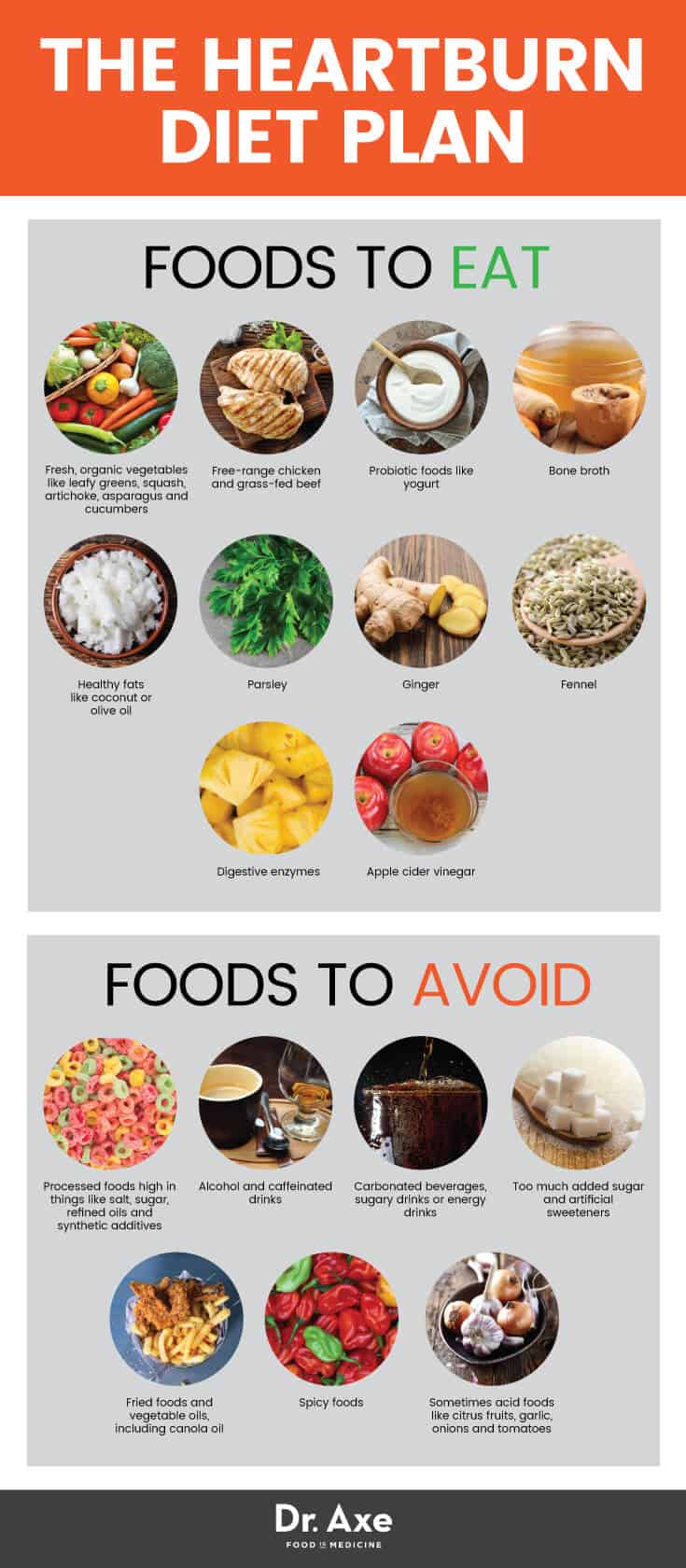This Dr. Axe content is medically reviewed or fact checked to ensure factually accurate information.
With strict editorial sourcing guidelines, we only link to academic research institutions, reputable media sites and, when research is available, medically peer-reviewed studies. Note that the numbers in parentheses (1, 2, etc.) are clickable links to these studies.
The information in our articles is NOT intended to replace a one-on-one relationship with a qualified health care professional and is not intended as medical advice.
This article is based on scientific evidence, written by experts and fact checked by our trained editorial staff. Note that the numbers in parentheses (1, 2, etc.) are clickable links to medically peer-reviewed studies.
Our team includes licensed nutritionists and dietitians, certified health education specialists, as well as certified strength and conditioning specialists, personal trainers and corrective exercise specialists. Our team aims to be not only thorough with its research, but also objective and unbiased.
The information in our articles is NOT intended to replace a one-on-one relationship with a qualified health care professional and is not intended as medical advice.
Heartburn Symptoms, Causes & Treatments
March 8, 2017

It’s now estimated that more than 60 million American adults experience heartburn symptoms at least once a month. Surveys have found that the number of people reporting daily or weekly heartburn and/or acid reflux symptoms has risen nearly 50 percent over the last decade. (1) If you’re one of these people, wondering how to get rid of heartburn for good, or at least how to find fast relief from your most painful heartburn symptoms?
As you’ll learn more about below, tackling heartburn requires figuring out first and foremost what’s causing the condition and then taking steps to remove the underlying triggers. Reasons you might be struggling with these forms of indigestion include consuming a poor diet, not getting enough exercise, older age, which changes aspects of digestion, frequently using certain medications, or being under a great deal of stress.
Natural heartburn remedies therefore include lifestyle and dietary changes like avoiding certain problem foods, consuming more whole foods, and changing your sleep, exercise, medication use and stress management habits.
What Is Heartburn?
Heartburn is a form of uncomfortable indigestion that causes painful burning sensations in the chest or upper abdomen. It’s closely related to acid reflux, or the condition characterized by someone experiencing backward flow of stomach acid into the esophagus. (2) Regularly suffering from severe heartburn symptoms might also be a sign that you’ve developed gastroesophageal reflux disease, or GERD for short.
Wondering what the difference is between heartburn, acid reflux and GERD exactly? Acid reflux is the actual flow of acid into the esophagus that triggers heartburn. According to most digestive experts, some degree of acid reflux might actually be normal, as everyone experiences some movement of stomach acid around the gastrointestinal tract. (3) However, in healthy people usually this doesn’t cause much pain or only mild symptoms every now and then. So while acid reflux can cause occasional heartburn discomfort, it’s not considered to be a disease, unlike GERD.
GERD is a more progressed and dangerous condition all together than acid reflux or heartburn because over time it can cause permanent damage to tissue within the esophagus — sometimes even developing into esophageal cancer, which affects about 15 percent of GERD patients. Signs that heartburn has progressed to the level of being considered GERD include difficulty swallowing or keeping down food/liquids (very common in young children), chronic coughing that can be painful at times, wheezing or difficulty breathing normally, and strong chest pain. Most often these severe heartburn/GERD symptoms happen at night and tend to keep coming back over and over again, at least monthly or even daily.
Heartburn Symptoms and Signs
The most common heartburn symptoms include: (4)
- Experiencing an unpleasant burning feeling in the chest, usually just behind the breastbone (near the heart) following a meal
- Developing a sour taste in the mouth
- Having a hard time sleeping or laying down due to pain
- Dry mouth
- Gum irritation, including tenderness and bleeding
- Tooth erosion
- Pain or swelling in the throat
- Bad breath due to slight regurgitation of acidic foods
- Bloating, burping or passing gas after meals
- Stomach noises
- Nausea and sometimes loss of appetite

Research also shows that people with long-standing, chronic heartburn or GERD are at greater risk for serious complications, including stricture (narrowing) of the esophagus, Barrett’s esophagus, severe tissue scarring, asthma, chronic coughs, hoarseness and esophageal cancer.
While heartburn is very common (about 20 out of 100 people living in Western countries regularly have symptoms of heartburn or acid reflux), it usually doesn’t directly cause serious health problems. However, the underlying reasons that someone might be struggling with heartburn symptoms often have to do with a bigger issue: dysfunction within the digestive system, especially the gut. With time, if poor gut health isn’t improved — which may include leaky gut syndrome — this will likely cause other symptoms to emerge as well, such as impaired immunity, nutrient deficiencies and low energy levels.
Heartburn Causes and Risk Factors
Heartburn and acid reflux are caused due to problems stemming from someone’s digestive system, including the stomach, sphincter and food pipe. Although the exact reasons that this happens aren’t fully known, the pain associated with heartburn develops when gas or stomach contents (including acid) leak up into the food pipe and irritate the lining of the esophagus.
Despite what most people assume, acid reflux symptoms of any type — or if you have another digestive condition like leaky gut syndrome or inflammatory bowel disease — are not signs that you have high stomach acid production. In fact, it’s often the other way around. Many people with indigestion produce too little stomach acid but consume foods that lead to acidity. To combat this issue, you want to naturally balance the pH level of your stomach, leading to a more alkaline environment and not a more acidic one.
Different things cause heartburn to be triggered in different people, so it can take some trial and error to determine exactly what’s causing your specific symptoms. That being said, there are a number of known food sensitivities and lifestyle habits that commonly trigger heartburn or acid reflux in a high number of sufferers. Foods and other factors that contribute most to the development of heartburn symptoms include: (5)
- A poor diet: Those who consume lots of processed foods, high-sodium foods, caffeine, alcohol, chocolate, sugar and refined grains are at the highest risk for all sorts of indigestion, including heartburn.
- Nutrient deficiencies, including magnesium deficiency or low potassium levels
- Eating large meals rather than spacing out food intake, especially if consumed close to bedtime
- Food allergies or sensitivities
- A sedentary lifestyle
- Being overweight or obese
- High levels of stress
- Taking certain irritating medications, including antibiotics, ibuprofen, muscle relaxers, some blood pressure prescriptions and aspirin
- Overtraining (too much exercise with not enough rest): Overtraining and getting too little rest can cause acid reflux by putting extra pressure in the abdominal cavity. This includes running and other aerobic high-impact exercises. (6)
- Pregnancy
- Older age: Heartburn and GERD are some of the most common upper gastrointestinal disorders seen in the elderly due to natural changes in acid and saliva production as well as emptying of the stomach. It’s also been found that there’s an increase of esophagitis and Barrett’s esophagus in patients over 60 years of age with frequent heartburn or GERD compared to those who are younger. (7)
- A history of hiatal hernias: Hiatal hernia is when the upper part of the stomach protrudes above the diaphragm, allowing acid to escape.
- In the case of GERD, when heartburn has progressed and symptoms have become very severe, research suggests that an underlying cause is high levels of inflammation. Studies have found that inflammation is linked to the development of GERD because it causes tissue damage triggered by the immune system and poor gut health, which causes changes in acid release and dysfunction in the esophagus. Sometimes acid reflux or GERD can lead to changes in the mucous membranes lining the lower end of the food pipe due to inflammation and other factors, which develops into what is known as “Barrett’s esophagus.”
Conventional Medicine and Treatments for Heartburn
Many doctors recommend taking over-the-counter antacid medications for occasional heartburn to help alleviate symptoms, however with frequent use these pills can actually cause other worsened digestive problems — or even problems like infection. Side effects of taking antacids too often include constipation, diarrhea (due to stools becoming too runny), changes in magnesium levels, and rarely other serious conditions that affect the kidneys and immune system.
It’s also possible for heartburn treatments to interfere with how well other medications work, including aspirin or allergy drugs, and to cause changes to blood pressure in some instances. (8) Most importantly, remember that using any type of drug to counteract any symptoms due to poor digestion won’t solve the problem at its root. Heartburn is ultimately likely to keep coming back unless you make lasting changes to your lifestyle and diet.
4 Natural Treatments for Heartburn Symptoms
1. Improve Your Diet and Avoid Trigger Foods
Research suggests that foods that tend to make heartburn worse, and therefore should be avoided, include:
- Processed foods high in things like salt, sugar, refined oils and synthetic additives
- Alcohol and caffeinated drinks
- Carbonated beverages, sugary drinks or energy drinks
- Too much added sugar and artificial sweeteners
- Fried foods and vegetable oils, including canola oil
- Spicy foods
- Sometimes acid foods like citrus fruits, garlic, onions and tomatoes
Consume more fresh organic vegetables (especially leafy greens, squash, artichoke, asparagus and cucumbers), free-range chicken and grass-fed beef, probiotic foods like yogurt, bone broth, healthy fats like coconut or olive oil, parsley, ginger, and fennel. (9)
Another thing I recommend trying in order to balance the pH in your stomach is taking digestive enzymes, HCL with pepsin supplements and using apple cider vinegar right before your meals. Take one tablespoon of vinegar with just a very small amount of water prior to eating. You should also try eating smaller portion sizes throughout the day, which puts less pressure on the digestive organs. Try to plan meals so you eat several hours before bedtime and aren’t laying down soon after eating meals.
2. Exercise and Maintain a Healthy Weight
Obesity, sedentary lifestyle, and nocturnal gastroesophageal reflux or heartburn (experiencing symptoms at night that interfere with sleep) are some of the most significant mechanisms that are associated with severe esophageal and extraesophageal complications of heartburn. (10) Regular exercise (at least 30 minutes per day) can help you manage your weight more easily, reduce inflammation, help you cope with stress and improve sleep quality. However, balance is everything, since too much exercise can take a toll on the endocrine, immune and nervous systems, as can getting too little rest or time for relaxation.

3. Avoid Smoking and Too Much Alcohol or Caffeine
Smoking is one of the leading risk factors for acid reflux and various other diseases. Consuming too much alcohol and smoking cigarettes impairs muscle reflexes and increases production of acid, not to mention raising inflammation and impacting digestion in other ways. Try to do whatever you can to quit using tobacco products as soon as possible.
You also want to avoid caffeine overdose, which can wreak havoc on digestion as well.
4. Change Your Sleeping Position If You Suffer at Night
Many find relief from very painful symptoms of heartburn that occur at night when they get enough sleep in general and also try raising the heads of their beds several inches. This can help stop stomach acid from creeping up as it positions the head above the digestive organs. Sleeping and relaxing enough (if you’re currently not) help with regulating hormones and enzymes linked to digestion, balancing hormones, and allowing the body to better handle stress.
Precautions When Treating Heartburn
If your symptoms keep coming back week after week despite changing your diet and other habits, it’s a good idea to consult with your doctor. There are many different reasons you might be struggling with heartburn, and a professional evaluation can help you pinpoint possible culprits. It’s possible that heartburn symptoms can worsen from taking medications, such as the birth control pill or certain drugs used to treat high blood pressure, so talk to your doctor about alternative options.
During symptom flare-ups, be careful to avoid smoking cigarettes, drinking too much alcohol or caffeine, exercising, and immediately laying down. Look out for warning signs of a bigger problem, such as vomiting for several days, black or bloody stools, lots of trouble breathing, or strong chest pains with numbness. Consult your doctor right away if you experience lots of hoarseness, worsening of asthma after meals, pain that’s persistent following exercise, difficulty breathing that occurs mainly at night and trouble swallowing for more than one to two days.
Final Thoughts on Heartburn Symptoms and Relief
- Heartburn is a very common digestive problem linked to acid reflux, a condition where stomach acid and other contents flow backward from the stomach into the esophagus. This causes heartburn symptoms like burning sensations, chest pain, a sour taste in the mouth, and sometimes coughing or gassiness.
- Risk factors and causes of heartburn include eating a poor diet, obesity, a sedentary lifestyle, older age and high levels of inflammation.
- Ways to help treat heartburn naturally include reducing intake of problematic foods that interfere with gut health, changing certain medications, exercising, losing weight and managing stress better.


